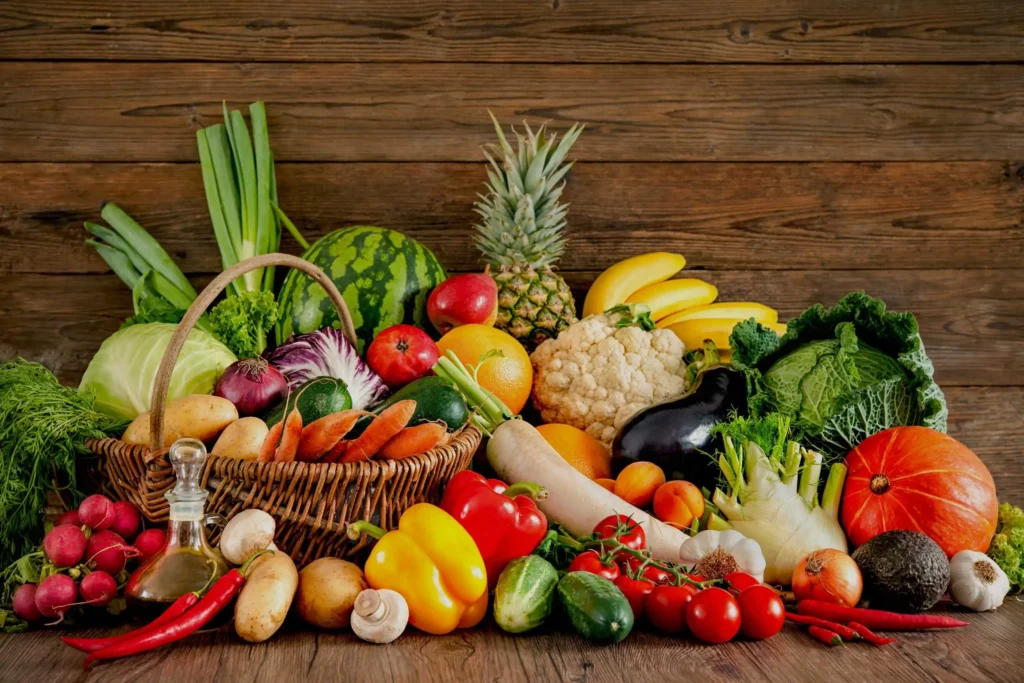Maximizing the Freshness of Fruits and Vegetables: Practical Storage Tips

Fruits and vegetables are vital for maintaining good health, but soaring prices can make it challenging to keep these nutritious staples in your diet, especially if you’re managing on a fixed income. The key to getting the most out of your purchases is knowing how to store them properly to extend their freshness.
Storing Fruits for Optimal Freshness
Fruits are nature’s treat, offering a burst of sweetness and essential nutrients, but they can perish quickly. Here are some tips to keep your fruits fresh longer:
- Apples: Store apples in the refrigerator’s crisper drawer away from lemons and limes to prevent over-ripening. Room temperature will hasten decay, so refrigeration can dramatically extend their life.
- Bananas: Keep bananas away from other fruits to slow their ripening. Wrap the stems in plastic to contain ethylene gas and hang them on a banana hook to avoid bruising.
- Grapes: Opinions vary on whether to wash grapes before storage. One approach is to keep them unwashed on the stem and store them in the crisper. Alternatively, you can wash, dry, and store them in a ventilated container. Decide based on what works best for you.
- Oranges: Store oranges in a mesh bag in the crisper drawer, away from direct sunlight, to prevent over-ripening.
- Avocados: Store unripe avocados at room temperature. Once ripe, you can refrigerate them to maintain freshness. Use lemon juice on cut avocados to prevent browning.
Extending the Life of Vegetables
Vegetables require different storage methods depending on their type. Here are some effective ways to keep your vegetables fresh:
- Dark Green Vegetables: Wash, dry, and store vegetables like broccoli and spinach rolled in paper towels in an airtight container to keep them fresh longer.
- Red and Orange Vegetables: Vegetables like carrots and bell peppers can be stored in plastic bags in the crisper, where they can stay fresh for up to two weeks.
- Beans: Keep fresh beans like chickpeas and kidney beans in the crisper drawer, unwashed until ready to use.
- Peas: Fresh peas can be stored in the freezer for up to a year. Dry them thoroughly before placing them in a vented container or a punctured Ziploc bag.
- Lentils: Store dried lentils in an airtight container in your cupboard for up to a year. Cooked lentils can be refrigerated for up to a week or frozen for six months.
Additional Tips for Maintaining Freshness
- Hydration: Moisture is crucial, especially for leafy greens. Ensure that all produce is adequately dried after washing to prevent mold and spoilage.
- Ethylene Management: Some fruits produce ethylene, a natural gas that accelerates ripening. Keep ethylene-producing fruits like apples and bananas separate from other produce.
- Regular Checks: Regularly inspect your fruits and vegetables and remove any spoiled pieces to prevent the spread of rot.
By implementing these storage tips, you can extend the life of your fruits and vegetables, making the most of your grocery budget while ensuring you have access to healthy, nutritious food. Here’s to enjoying fresh produce longer and leading a healthier lifestyle!
